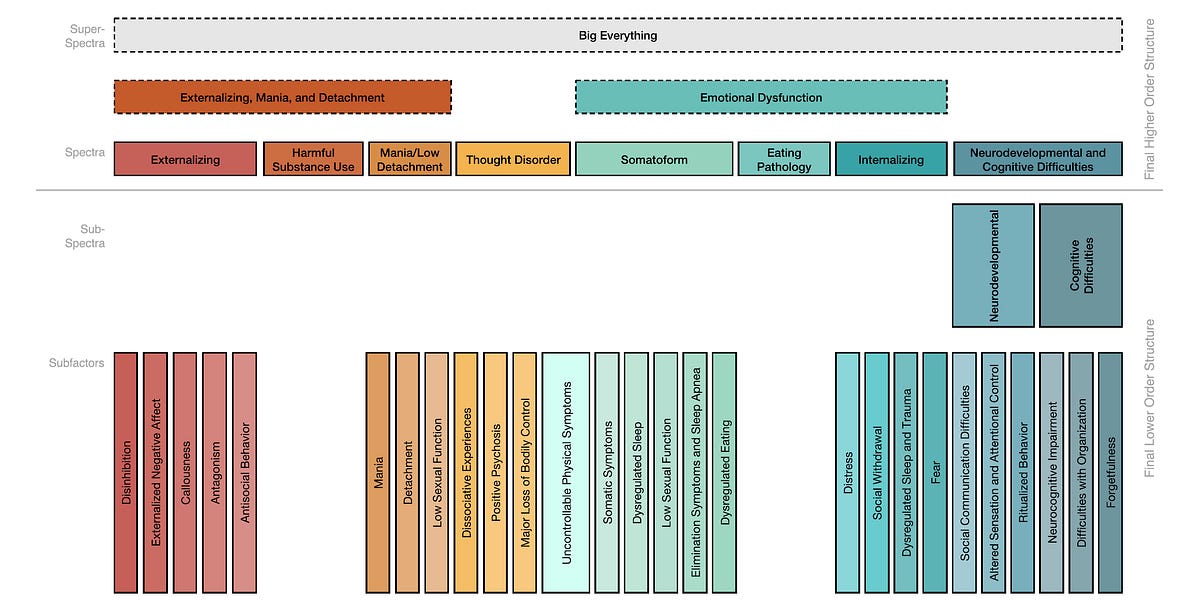Groundbreaking Study Reorganizes Psychopathology Using Data-Driven Approach

A large-scale online survey has revolutionized our understanding of psychiatric classification. Researchers analyzed data from 14,800 participants to reorganize DSM-5 symptoms, revealing 8 major psychopathology spectra (e.g., Externalizing, Internalizing, Neurodevelopmental) and 27 subfactors. Surprisingly, common disorders like Major Depressive Disorder, Generalized Anxiety Disorder, and PTSD didn't emerge as distinct symptom clusters but rather dissolved into finer-grained, homogenous symptom groups. This challenges existing diagnostic criteria, suggesting that mental illnesses aren't fixed entities but variable combinations of symptoms. The findings have major implications for future psychiatric classification but also highlight the need for further research to refine the model.
Read more